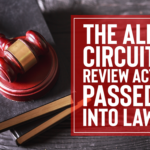By now, you have no doubt heard about the years of widespread fraudulent activities at Wells Fargo which led to the bank having to pay hundreds of millions in settlements and fines and the resignation of the bank’s CEO. Over 5,300 employees of the bank participated in fraudulent activity to open phony accounts in millions of customer’s names, causing significant financial damage to those customers which may hurt their credit scores for years. Regulators only took a hard look at Wells Fargo in this past few years, but the activity had been reported to the federal government as far back as 2010. Those complaints were ignored by OSHA regulators, and the fraud continued, while the people who reported the wrongdoing were punished. The ongoing revelations of the Wells Fargo scandal demonstrate that, when providing whistleblower information, it is important to work with experienced representation who can make sure that your information is properly related to the right places and that you are rewarded and not punished for your efforts.
OSHA Took No Action to Help Wells Fargo Whistleblowers
While Yesenia Guitron was working for Wells Fargo as a personal banker in 2008, she began to receive complaints from customers about fees and charges associated with accounts opened in their names that they had never authorized. Guitron called the company’s internal ethics hotline to report her concerns and also spoke with her manager and the bank’s human resources department. Soon after, Guitron was fired.
Guitron then contacted the OSHA Whistleblower Protection Program, but nothing was done in response to her complaints. She made her complaints in 2010, a full six years before significant action was taken by federal regulators regarding the illegal activity.
A former OSHA inspector said that he knew of numerous complaints filed with the agency over Wells Fargo’s business practices, and said supervisors ordered him to close investigations without taking the proper steps to verify their accuracy or enforce banking laws. OSHA is currently reviewing past complaints lodged with the agency over Wells Fargo’s practices, including a 2011 complaint from a Wells Fargo branch manager which has remained pending for five years without any significant action by the agency.
There is a Better Way to Bring Whistleblowing Claims
The Wells Fargo debacle demonstrates that there are many ineffective and indeed perilous ways to bring whistleblowing claims. Certainly, reporting through internal channels can have a damaging effect on employees, even though retaliation against whistleblowers is illegal. And even bringing concerns to certain government agencies such as OSHA is not a guarantee of success.
By working with an experienced whistleblower attorney, you can ensure that proper steps are being taken to report wrongdoing in the most effective manner, while providing protection against retaliation and maximizing the chances of a whistleblower reward. The federal government has made great strides since 2010 in the facilitation of the whistleblowing process, including through the SEC whistleblower program, which has already paid out over $100 million in rewards to whistleblowers over the past five years.
Obtaining Your Own SEC Whistleblower Award
The SEC is actively looking for more individuals to bring information to it which can be rewarded with a whistleblowing award, but there are a couple important factors to keep in mind. Bringing whistleblower information to the SEC can be a long, complex process, but it can also be tremendously lucrative, and the right thing to do to help keep our financial markets fair. Learn more about how Kreindler & Associates can help in your SEC whistleblower matter.




